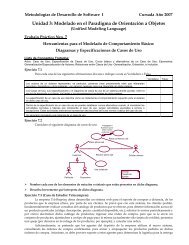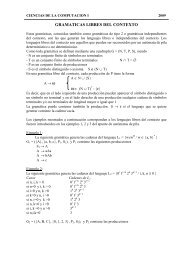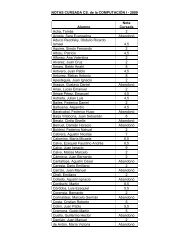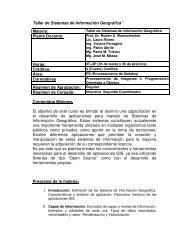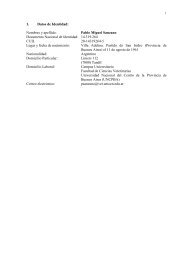Libro de Resúmenes / Book of Abstracts (Español/English)
Libro de Resúmenes / Book of Abstracts (Español/English)
Libro de Resúmenes / Book of Abstracts (Español/English)
You also want an ePaper? Increase the reach of your titles
YUMPU automatically turns print PDFs into web optimized ePapers that Google loves.
Resumenes 179<br />
Malaria is the tropical infectious disease which menaces more people<br />
in the world than any other disease. The largest number <strong>of</strong> cases in America<br />
occurs in Brazil, being this one the third country in the disease inci<strong>de</strong>nce in<br />
the world. In Brazil, 99% <strong>of</strong> the cases are concentrated in the Amazônia<br />
region where the socioeconomic and natural environment conditions favor<br />
the proliferation <strong>of</strong> the vector mosquitoes <strong>of</strong> malaria.<br />
Many malaria control schemes have been elaborated in several<br />
countries but success has been below <strong>of</strong> expectancy. For the control<br />
strategies to be more efficient, scientists have been working to create<br />
genetically modified mosquitoes in or<strong>de</strong>r to encapsulate the Plasmodium.<br />
The i<strong>de</strong>a is to couple these mosquitoes with wild mosquitoes generating<br />
<strong>de</strong>scending refractory to the disease, which would substitute over the long<br />
range.<br />
In or<strong>de</strong>r to set the gui<strong>de</strong>lines for a successful mosquitoes substitution,<br />
the mathematical mo<strong>de</strong>ls <strong>of</strong> population evolution play an important role<br />
supplying a close-to-reality analysis. Though the formulation <strong>of</strong> an optimal<br />
control problem for these mo<strong>de</strong>ls, it is possible to indicate a viable, effective<br />
and low budget manner <strong>of</strong> specie substitution implementation.<br />
The mathematical mo<strong>de</strong>l proposed in this work contemplates the<br />
interaction between wild and genetically modified mosquitoes, being the last<br />
one the controller <strong>of</strong> system. The seasonal variation <strong>of</strong> the mosquitoes<br />
populational <strong>de</strong>nsity, which is a characteristic <strong>of</strong> the Amazônia region, also<br />
is taking into account.<br />
The control function consi<strong>de</strong>red in this work has two parts: the first<br />
one - feedforward control - maintains the system controlled on <strong>de</strong>sired<br />
trajectory; the other - feedback control - stabilizes the system around the<br />
<strong>de</strong>sired trajectory.<br />
Finally, the numerical experiments we have done have shown<br />
concordance <strong>of</strong> the mo<strong>de</strong>l with collected data and the effectiveness <strong>of</strong> the<br />
controller.<br />
Keywords: optimal control, malaria, genetically modified mosquitoes,<br />
seasonality<br />
Referências<br />
[WYS 05] Wyse, A.P, Bevilacqua, L. e Rafikov, M. Population Dynamics <strong>of</strong> An.<br />
darlingi in the Presence <strong>of</strong> Genetically Modified Mosquitoes with Refractoriness to<br />
Malaria. Proc. Symp. Math. Comp. Biol. 2005<br />
[RAF 04] Rafikov, M., Balthazar, J. M. Síntese do Controle ótimo Linear Feedback<br />
para Sistemas que Exibem Caos. Anais do 3° Congresso Temático <strong>de</strong> Dinâmica e<br />
Controle da SBMAC. Available at CD-Room. 2004<br />
[FNS 02] Programa Nacional <strong>de</strong> Prevenção e Controle da Malária, Brasília:<br />
Ministério da Saú<strong>de</strong>. Fundação Nacional da Saú<strong>de</strong> – FUNASA, 2002.<br />
[CAT 00] Catteruccia, F. et all, Stable germline transformation <strong>of</strong> the malaria<br />
mosquito Anopheles stephensi, Nature, 405 (2000) 959-962.<br />
[OGA 95] Ogata, K., Engenharia do Controle Mo<strong>de</strong>rno. Addison Wesley, 1995.



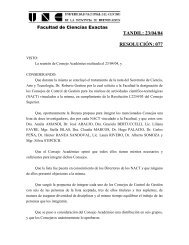
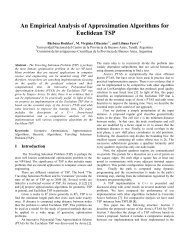
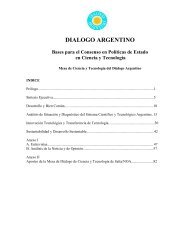



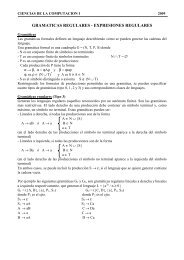

![Clase 13 [pdf]](https://img.yumpu.com/19616969/1/190x245/clase-13-pdf.jpg?quality=85)
